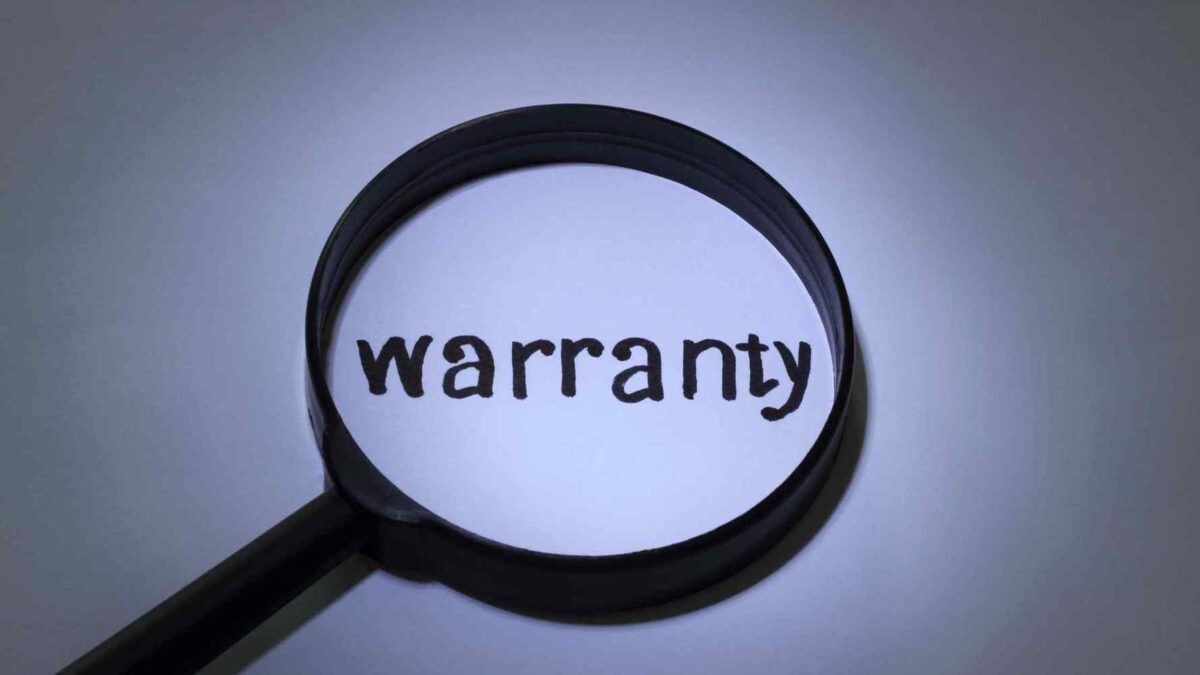What is the Implied Warranty of Merchantability?

My Vehicle is out of Warranty, Now What?
October 17, 2020
The Difference Between a Vehicle Lemon Law Claim and a Vehicle Fraud Claim
December 21, 2020The implied warranty of merchantability in general is a warranty that is provided by retailers of consumer goods who do business in commerce. The warranty is an “unstated guarantee” that the goods should perform as ordinary and safe goods as the retailer is selling in the stream of commerce. For example, when you buy a T.V., you have the expectation that the T.V. would turn on when plugged into an electrical outlet and that it would not break into pieces. If you were to buy a blender from a retailer, you would expect the blender to blend and crush to pieces that delicious and nutritious smoothie made out of strawberries, bananas, and ice and that the blade would not come flying into your face and harm you. When it comes to vehicles, you would then expect the vehicle dealership to sell you a vehicle that would turn on and run as a vehicle should. Sometimes, the implied warranty of merchantability may be disclaimed, and the goods may be sold “As is,” but not all time. To help explain the implied warranty of merchantability concept, it is instructive to take a look at the essential factual elements of a cause of action of a breach of the implied warranty of merchantability as shown in the Judicial Council for California Civil Jury Instructions. For the purposes of this writing, we will call, the aggrieved party the consumer, the defendant the car manufacturer or dealership, and the product, a vehicle.
1) The consumer must have bought the product from the car manufacturer or dealership.
2) At the time of the purchase, the car manufacturer or dealership was in the business of selling these goods.
3) That the vehicle was not of the same quality as those generally accepted in the trade, or did not conform to the quality established by the parties’ prior dealings or by the usage of trade.
4) That the consumer took reasonable steps to notify the car manufacturer or dealership within a reasonable time that the product did not have the expected quality.
5) That the consumer was harmed.
6) And that the failure of the vehicle to have the expected quality was a substantial factor in causing the consumer’s harm.
The Song Beverly Consumer Warranty Act or “California Lemon Law,” prescribes that under the implied warranty of merchantability the vehicle must meet each of the following (CCP 1791.1) :
(1) Pass without objection in the trade under the contract description.
(2) Are fit for the ordinary purposes for which such goods are used.
(3) Are adequately contained, packaged, and labeled.
(4) Conform to the promises or affirmations of fact made on the container or label.
California courts have determined that the core test of merchantability is “fitness for ordinary purposes for which the goods are used” and thus the product has to be both, “in a safe condition,” and “substantially free of defects.” (Mexia, 174 Cal. App. 4th at 1303 and Music Acceptance Corp. v. Lofing, 32 Cal. App. 4th 610, 619 (1995)).
Duration of the Implied Warranty of Merchantability
The implied warranty of merchantability runs concurrently with an express warranty and thus the duration of the implied warranty of merchantability is the same as the duration of any express warranty accompanying the vehicle, if reasonable, but never less than 60 days, or more than a year following the sale of new consumer goods to a buyer. If no duration is stated for an express warranty, one year. CCP 1791.1 (c). Thus, if the vehicle is sold to a consumer by a retailer with any type of manufacturer express warranty, the vehicle would come with an implied warranty of merchantability, unless the implied warranty of merchantability is “effectively” disclaimed.
Disclaiming the Implied Warranty of Merchantability
Generally, the Song Beverly Consumer Warranty Act implied warranty of merchantability cannot be waived, “No implied warranty of merchantability and, where applicable, no implied warranty of fitness shall be waived, except in the case of a sale of consumer goods on an “as is” or “with all faults” basis where the provisions of this chapter affecting “as is” or “with all faults” sales are strictly complied with.” CCP 1793.2.
What is an Effective Implied Warranty of Merchantability Disclaimer?
According to CCP 1792.4 (a):
No sale of goods, governed by the provisions of this chapter, on an “as is” or “with all faults” basis, shall be effective to disclaim the implied warranty of merchantability or, where applicable, the implied warranty of fitness, unless a conspicuous writing is attached to the goods which clearly informs the buyer, prior to the sale, in simple and concise language of each of the following:
(1) The goods are being sold on an “as is” or “with all faults” basis.
(2) The entire risk as to the quality and performance of the goods is with the buyer.
(3) Should the goods prove defective following their purchase, the buyer, and not the manufacturer, distributor, or retailer assumes the entire cost of all necessary servicing or repair.
(b) In the event of the sale of consumer goods by means of a mail-order catalog, the catalog offering such goods shall contain the required writing as to each item so offered in lieu of the requirement of notification prior to the sale.
Damages
The difference of having bought a vehicle “As Is” and having bought one with an implied warranty of merchantability, or an express warranty, are dramatic in that if a consumer bought a vehicle with no warranty, generally the consumer would have no cause of action against the retailer or manufacturer.
In sum, the implied warranty of merchantability runs concurrently with an express warranty and may last from 60 days to no more than one year and generally can only be disclaimed by a retailer if the retailer follows strict guidelines prescribed the Song Beverly Consumer Warranty Act or California Lemon Law statute, which can be found in the California Code of Civil Procedure.
Do you have questions about whether the vehicle you bought from a California dealership came with an implied warranty of merchantability or an express warranty? Contact a competent lemon law attorney.
Learn more about Luis Aguirre Law by visiting our other brand profiles: Quora, Reddit, Facebook, Twitter, Yelp, and Google.Business.
Luis Aguirre California Lemon Law Attorney 26060 Acero Suite 111
Mission Viejo, CA 92691 Telephone: 949.342.6199.
Contact us Today
The information on this posting is for general information and/or educational purposes only and should not be construed as legal advice or a guarantee on the outcome of a particular case. This publication may contain dramatization. This posting is intended for California consumers only. This posting is considered advertisement by Luis Aguirre Law, who is also responsible for its content. Viewing, reading, or receiving the information on this posting does not create an attorney-client relationship. We are not your attorneys until you sign a written contract with Luis Aguirre Law, and the contract is fully executed (signed by attorney). Although information on this posting is deemed accurate, information on this posting should not be acted or relied upon without first conducting an independent investigation and/or obtaining qualified legal counsel, or you do so at your own risk. Attorney is licensed in the state of California only. Attorney Luis Aguirre is bilingual and also speaks Spanish and will provide help in Spanish if you request it. Although attorney limits his practice to the particular field of breach of contract – lemon law, attorney is not a certified specialist in this particular field or any other field of law. See “Our Policies” tab for further details regarding our Privacy Policy, Disclaimer, and Attorney’s Fees.




